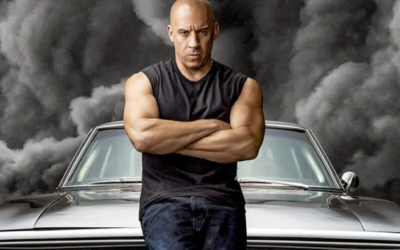Throughout the most recent decades of cinematic history, how a particular individual receives compensation for their work on a film has remained relatively consistent. While it is far from uncommon for an actor, director, or any other major talent to be paid a single specific amount for their contributions (e.g. an actor getting $2 million and nothing more), many filmmakers, especially those associated with major blockbuster franchises, will also ask for a percentage of whatever profits are earned from the film’s box office intake. For films that rank as among the highest-grossing of a given year, this latter option can be quite appealing for those who enter long-term contracts with a given studio, as there is often potential for an increasing paycheck should a franchise prove to be insanely profitable.
That has started to change, however, with the growing presence of films released through streaming services like Netflix and HBO Max as opposed to traditional theatrical sales. In this situation, since there is no certain way to calculate how profitable a film can be when exhibited through streaming, most cast and crew that work on these productions are usually contracted to receive a definitive sum up front and rarely anything more. For the most part, this hasn’t been too much of an issue for those working on such films, but only for films that are initially released only through streaming. When it comes to films that are released in theaters and on streaming at the same time, which have become increasingly common throughout the past year, that’s where things start to become a bit more complicated, and not in a good way.
Warner Brothers, the primary film branch of Warner Media, was among the first to be at the center of such controversies when it was announced that all of its 2021 films would be released simultaneously in theaters and on HBO Max. This caused a bit of an uproar among those who had worked on the films that Warner Brothers would be distributing throughout the year (as well as Legendary Pictures, a major production company that had worked with Warner Brothers on such films as “Godzilla vs Kong” and the upcoming “Dune”), with many claiming that the films being available for free on streaming would reduce the amount of revenue they would be making through theatrical ticket sales, therefore depriving these individuals of the money they would receive as agreed to in their contracts. While an agreement would eventually be reached among both parties, one that would ensure that those involved in the making of these films would be more justly compensated, the problem of talents not receiving the payments they are owed still persists, and it was just recently when one of Hollywood’s most famous actors began to take action against one of Hollywood’s biggest motion picture corporations, an act that could end up having major repercussions on the future of how cinema does business with those who work for it.
On Thursday, July 29th, actress Scarlett Johansson, best known for playing the superhero Black Widow throughout several films in the Disney-owned Marvel Cinematic Universe franchise (including the most recent MCU film, also titled “Black Widow”), filed a lawsuit against Disney in the Los Angeles Superior Court. According to Johansson, the studio had breached her contract when it had decided to release “Black Widow” in both theaters and on the company’s streaming site Disney+, as opposed to the original agreement to release the film only in theaters. According to the suit, much of Johansson’s promised earnings would be based in part by how much revenue the film receives through theatrical exhibition; putting the film on Disney+, the lawsuit claims, has resulted in the film (and therefore Johansson herself) not earning as much through ticket sales as it should be. “As Ms. Johansson, Disney, Marvel, and most everyone else in Hollywood knows, a ‘theatrical release’ is a release that is exclusive to movie theatres,” the lawsuit states. “Disney was well aware of this promise, but nonetheless directed Marvel to violate its pledge and instead release the picture on the Disney+ streaming service the very same day it was released in movie theatres.”
What makes this particular situation different from the HBO Max debacle is how Disney has chosen to release the film on Disney+, charging an additional $30 surcharge for the film (on top of the usual monthly payments subscribers make for the service) instead of making it available for no additional cost like everything else on the service. This is the exact opposite approach that Warner Media made with its decision, and one could argue that, because nobody is having to pay for a specific film on HBO Max, it would be difficult to determine what would be earned for that film alone if the people watching it on HBO Max were to instead see it in theaters. Disney, on the other hand, is charging a specific amount for viewers to watch “Black Widow”, allowing the studio to make it very clear as to how much revenue the film was receiving through streaming (which, during its opening weekend, came to a total of $60 million). With this means of distribution, Disney can know exactly how much a film makes through streaming, and with such information being known, one could feasibly determine how much a talent is owed as agreed to in their respective contracts.
Although Disney has argued such an approach was necessary in order for the film to profit during a time when the COVID-19 pandemic (similar to what Warner Media claimed when it announced its plans to give its films simultaneous theater/streaming releases), Johansson and her lawyers believe that is no excuse for her being deprived of the earnings she is owed. She’s not the only Hollywood actor to feel this way, as Emma Stone and Emily Blunt, who had also starred in Disney films released in both theaters and on Disney+ (“Cruella” and the recently released “Jungle Cruise” respectively), are both said to be considering filing similar suits against Disney (although Blunt’s co-star, Dwayne Johnson, claims that he will not be taking such actions himself).
Given how wealthy these actors already are, especially from what they’ve already earned from these films, one could easily dismiss this as Johansson and her fellow actors simply not being satisfied with what they already have. However, there’s a very strong chance that what is going on here is also going on with countless other people working in the film industry, many of whom do not have the fame and status to file such lawsuits and garner public support. Regardless of whether or not Johansson needs the money she claims has not been given to her, her decision to file suit against Disney could have ripple effects on the industry as a whole, effects that could forever change how anyone working on a film, from a production assistant to an executive producer, is paid for their work from this point on.
“Ignoring the contracts of the artists responsible for the success of its films in furtherance of this short-sighted strategy violates their rights,” Johansson attorney John Berlinski states. “[This will] surely not be the last case where Hollywood talent stands up to Disney and makes it clear that, whatever the company may pretend, it has a legal obligation to honor its contracts.”




